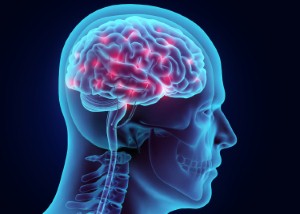News by Profession
- Audiology News
- Cardiac Physiology News
- Dietetics News
- Biomedical Science News
- Pharmacy News
- Phlebotomy News
- Radiography News
- Speech Therapy News
- Podiatry News
- Doctors News
- Sterile Services News
- Mental Health News
- Nursing News
- Mortuary News
- Physiotherapy News
- Occupational Therapy News
Pharmacy Jobs by Duration
News Links
Scientists identify drugs that could prevent dementia

Latest Jobs
-
Pharmacy Technician - Aseptic
Speciality: Pharmacist Tech
Location: London
Duration: Temporary
-
Pharmacy Technician
Speciality: Pharmacist Tech
Location: West Midlands
Duration: Temporary
-
Clinical Pharmacist
Speciality: Pharmacist
Location: West Midlands
Duration: Temporary
-
Wards Pharmacist
Speciality: Pharmacist
Location: North West England
Duration: Temporary
UK scientists believe that they may have found two new drugs that are potentially able to prevent the development of dementia, Alzheimer's disease and other neurodegenerative conditions affecting the brain.
Four years ago, doctors belonging to the UK Medical Research Council believed that they had discovered a way to do just this following trials using animal models, but the drugs used to protect the brain were found to be unsuitable for use on humans, causing damage to their organs.
However, scientists working at the MRC Toxicology Unit in Leicester have revealed they have identified two different drugs that have the potential to achieve the same effect and have already been proven as safe to use by humans.
One of the drugs in question, trazodone, is prescribed to some patients to help with symptoms related to depression, with trials over the past few years showing that they can successfully prevent the development of dementia, as well as prion disease, which is a viral infection that can affect the brain.
The other drug is DBM, which is currently being tested on cancer patients, but has shown promise in having a similar effect on the brain to trazodone.
They both work by protecting brain cells from prion disease, which can cause them to shut down, increasing the risk of the onset of neurodegenerative illnesses, such as dementia, Alzheimer's and Parkinson's disease.
Speaking to BBC News, Professor Giovanna Mallucci, one of the researchers involved in the discovery, explained: "It's time for clinical trials to see if there's similar effects in people and put our money where our mouth is.
"We're very unlikely to cure them completely, but if you arrest the progression, you change Alzheimer's disease into something completely different so it becomes liveable with.
"As a professional, a doctor and a scientist, I must advise people to wait for the results."
A spokesman for the Alzheimer's Society added that the charity was "excited" by these findings and what they could mean for the future of disease prevention.
Written by James Puckle
Search Mediplacements for the latest pharmacy jobs. 
Related News
-
Calls made to make Aimovig available...
According to the National Migraine Centre, one in seven people around the globe are affected by migraines,...
-
NHS makes new offer for cystic...
The NHS has made a new offer to a drug company to provide medicine for potentially thousands of cystic fibrosis...
-
First ever treatment for spinal...
Spinal muscular atrophy (SMA) is a rare genetic disease that up until now has had no treatment for the underlying...
-
NICE recommends MS drug after price...
Primary progressive multiple sclerosis (PPMS) is a rare form of MS that affects less than 15 per cent of people...